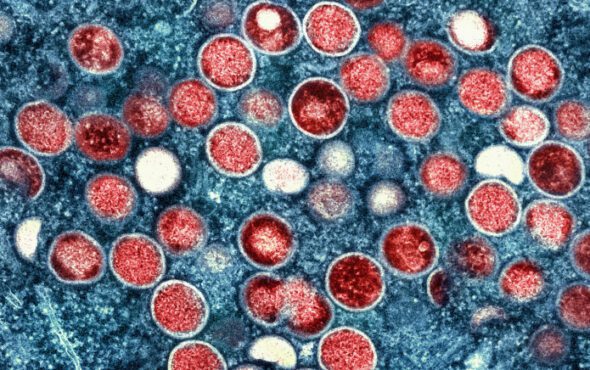
Mpox cases are still being identified in the UK, prompting leading sexual health charity Terrence Higgins Trust to remind everyone that it has not gone away.
From 1 January to 30 November this year, there have been 135 new cases reported in the UK, according to data published by the UK Health Security Agency (UKHSA) on 7 December.
However, almost half (56) of these were found in October and November.
Richard Angell, Chief Executive of Terrence Higgins Trust, has since stated that we could “see more in December and as we enter the new year, as it takes between 2 to 21 days for symptoms to show.”
“The latest UKHSA data shows that cases of mpox (formerly monkeypox) in the UK are now much lower thanks to the ongoing vaccination programme – but mpox has not gone away,” he said.
“It’s still also vital to be aware of the symptoms and latest health advice”
Angell continued: “If you change partners often, or have partners who do, now is the time to get your first and second vaccine dose, especially if you’re having sex in London or travel abroad for sex.
“It’s still also vital to be aware of the symptoms and latest health advice. In the first stages of mpox, you might have a fever, headache, aches and pains, or swollen glands. This usually progresses to developing a rash, sores, or spots – most commonly on the face, mouth, hands, genitals and rectum (bum).
“If you think you might have come into contact with mpox please get in touch with your sexual health clinic. It’s important to speak to them before arriving at clinic.”
There have been 3,732 mpox cases reported in the UK since 6 May 2022, 3,553 of which were in England alone.
READ MORE: Mpox vaccinations extended in London following spike in cases
Prior to last year, mpox cases were incredibly rare, with just seven identified in the UK between 2018 and 2021.
Dr Katy Sinka, Head of Sexually Transmitted Infections at UKHSA, said: “It’s clear from this latest update that mpox has not gone away, and although these are still low numbers, it’s vital that all those eligible for the vaccine come forward – which is still available in London and Greater Manchester.
“While mpox infection is mild for many, it can cause severe symptoms including unusual rashes and blisters, a fever and headache, so it’s important people remain alert to the risks.”
The NHS outbreak vaccination programme ended in July of this year, though remains available to those living in London and Greater Manchester, those travelling between the two to have sex, as well as those who regularly travel abroad to have sex.
Mpox vaccination sites can be found here.



